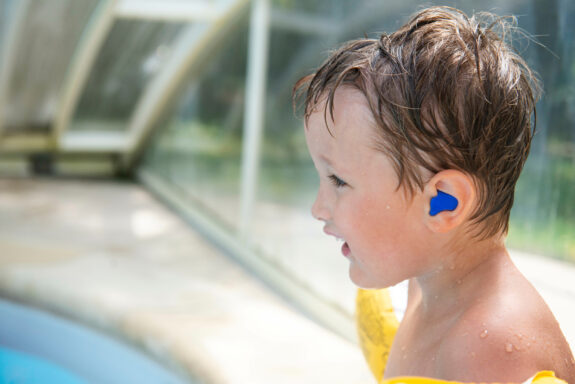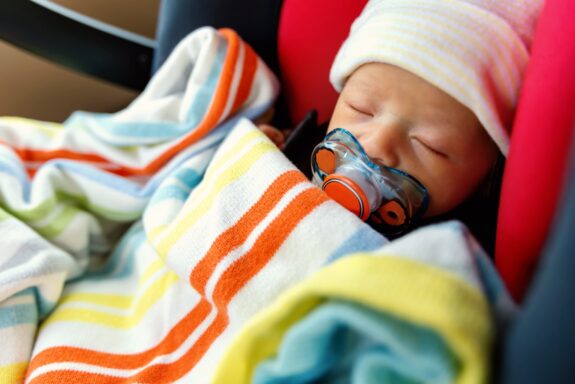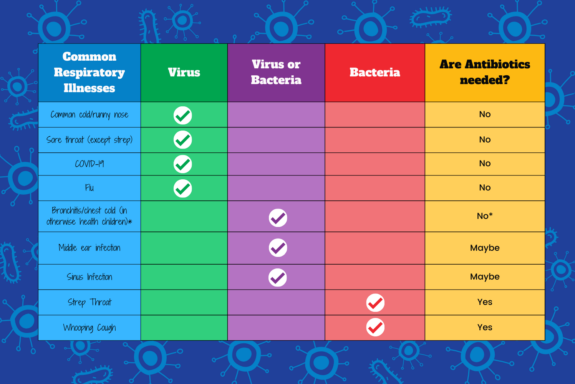Allergies in Children
You probably know a child who has asthma or allergies. Perhaps it is your own child. Asthma, hay fever, hives, and eczema are familiar words for most of us. In fact, in the United States over 35 million adults and children have these allergy-related products.
Allergies can be as minor as sneezing and itching. For some children, however, allergies can become very serious or even life threatening. Whether minor or serious allergies can be prevented and controlled. The more you understand about allergies and asthma- the symptoms, causes, and treatments- the better prepared you will be to help improve the quality of life for you and your child.
What is an allergy?
An allergy happens when the human body’s natural defense system (the immune system) overreacts to an otherwise harmless substance (like pollen). There are many way in which an allergy can exhibit itself:
- Asthma is when airways swell and air passages in the lung become narrow. This may be triggered by an allergic reaction, although non-allergic triggers can be involved.
- Allergic rhinitis is an allergic reaction mainly in the nasal passages. It can occur in one or more “seasons” (seasonal allergic rhinitis or “hay fever”) or all year long (perennial allergic rhinitis).
- Eczema (atopic dermatitis) is a chronic, itchy rash, most commonly found in young children. It may be made worse by certain allergies.
- Hives (urticaria) are itchy welts that may be due to allergies, viral infections, or unknown causes. Certain foods, viral infections, and medicated are most likely to cause hives.
- Contact dermatitis can be just a skin irritation or an allergic reaction. The allergic type is an itchy skin rash caused by touching, rubbing, or coming into contact with things like poison ivy, chemicals, or household detergents.
- Food allergy is an allergic reaction to food that can range from stomachache, to skin rash, to a serious respiratory and medical emergency
Milk allergy
Everyone has heard of children who are allergic to ordinary cow’s milk. However, milk allergy is rare. Only 1 in 100 children are truly allergic to cow’s milk. If you suspect your baby has a milk allergy, talk to your pediatrician. Be sure to mention if there is a family history of the allergy. Contact your pediatrician or go to the emergency room right away if your child:
- Has difficulty breathing
- Turns blue
- Is pale or weak
- Has swelling in the head and neck area
- Has bloody diarrhea
What causes allergies?
The causes of allergies are not fully understood. Children get allergies from coming into contact with allergens. Allergens can be inhaled, eaten, injected (from stings or medicine), or they can come into contact with the skin. Some of the more common allergies are:
- Pollens
- Molds
- House dust mites
- Animal dander and saliva (cat, dog, horse, rabbit)
- Chemicals used in industry
- Some foods and medicines
- Venom from insect stings
The tendency to have allergies is often passed on in families. For example, if a parent has an allergy problem, there is a higher than normal chance that his or her child also will have allergies. This risk increases if both parents are allergic.
How can I tell an allergy from a cold?
- The symptoms of an allergy include:
- An itchy runny nose, with thin, clear nasal discharge and/or stuffy nose
- Itchy watery eyes
- Repeated attacks of sneezing and itching of the nose, eyes, or skin that last for weeks or months
- No fever
- Often seasonal (spring, summer, fall before frost)
Cold symptoms include:
- Stuffy nose
- Nasal discharge that is usually clear initially but can turn colored and thick
- A duration of 3 to 10 days, with or without fever
- Occasional sneezing
- Absence of itching
When do allergies in children first show up?
A few children show signs of allergic reactions during infancy. Other children experience their first problems during adolescence. The first signs of eczema often occur in the first few years of life. Children with asthma and hay fever usually start to show signs during preschool or at least by early grade school. For some children, allergies lessen around the time of puberty. Others will continue to have problems into adult years.
Do drug treatments help?
There are many good medicines to treat allergies and asthma. Some, like antihistamines are available over-the-counter. They may help relieve many for the symptoms of hay fever and eczema, especially itching, sneezing, and runny nose. Your pediatrician may prescribe other kinds of medications. Both allergy and asthma medicines may have side effects. Some antihistamines may cause sleepiness, sometimes interfering with mental tasks. Decongestants (like pseudoephedrine) and oral asthma medications (like albuterol) may make your child irritable. Before using any medication you should talk to your pediatrician and carefully read the warnings listed on the label. If any of these medicines fail to relieve the symptoms, or if side effects interfere with rest, school, or play, you should call your pediatrician. Your child may need a different medication or dose.
When does my child need to get an allergist?
In some cases, avoiding the cause of the allergy or using medicines may not control allergic symptoms. If this happens, your pediatrician may recommend that you see a pediatric allergist, a doctor who specializes in hay fever, asthma, eczema, and other allergy-repeated disease. The allergist will most likely:
- Look for unsuspected triggers for your child’s allergic disease
- Suggest ways to avoid the cause of your child’s allergic symptoms
- Give you a specific medication plan to follow.
Allergy shots may be recommended. These shots contain small but gradually increasing amounts of the substances to which your child is allergic. This binds the antibodies that cause the allergic symptoms so your child is less sensitive to these substances. Allergy shots are not effective for food allergies. Staying away from the substance that causes trouble is best. Only a small number of children require allergy shots.
How can I help my child?
If you know your child has an allergy, you can try to prevent a problem with the following measures:
- Keeping windows closed during the pollen season, especially on a windy days when dust and pollen blow around and in the morning when some pollen counts are highest
- Keeping the house clean and dry to reduce mold and dust mites
- Keeping the household free of pets and indoor plants
- Avoiding foods or other substances known to cause allergic reactions in your child
- Preventing anyone from smoking anywhere your child, especially in your home and car
You can help your child live a happy, healthy life by working closely with your pediatrician to prevent problems and by using recommended medications. Your pediatrician also can tell you about simple environmental precautions to take and help you decide if your child needs to see an allergy specialist.
The information contained on this Web site should not be used as a substitute for the medical care and advice of your pediatrician. There may be variations in treatment that your pediatrician may recommend based on individual facts and circumstances.
Copyright © American Academy of Pediatrics 2004



